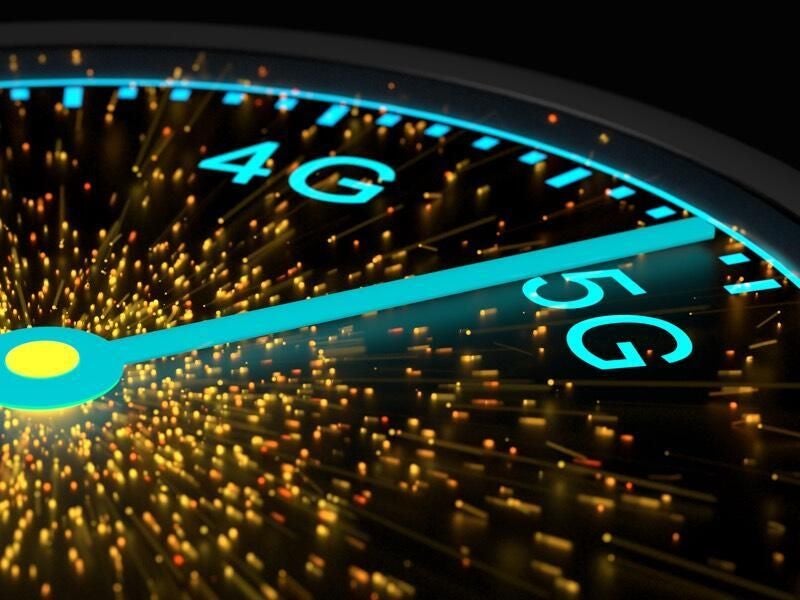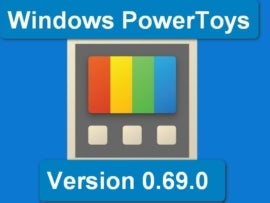
BeeBright, Getty Images/iStockphoto
Mobile network operators around the world are sprinting to fortify 5G network deployments to more efficiently serve the increasing number of 5G-comparable phones users and businesses are connecting to mobile networks.
Though smartphones are already ubiquitous, the increased use of mobile broadband adapters, always-connected computers, and consumer and enterprise Internet of Things devices require more data than previous 4G networks could sustainably supply.
SEE: Hiring Kit: 5G Wireless System Engineer (TechRepublic Premium)
Naturally, smartphone manufacturers are eager to continue to incorporate 5G in quality and popular phone offerings.
This cheat sheet for 5G-compatible smartphones is an overview of smartphones marketed as being 5G capable as well as a forecast of when manufacturers will release new devices. This article will be updated periodically as new announcements and products are released.
Jump to:
- Technical details of 5G
- What are the benefits and drawbacks of 5G-compatible smartphones?
- What devices are 5G compatible, and what hardware is needed?
Technical details of 5G
5G refers to the fifth generation of cellular mobile communications. Strictly speaking, the industry standard is called 5G NR. Unlike the fourth generation of cellular mobile communications, which had two competing standards — LTE and WiMAX — there is no competing standard to 5G NR. However, the 5G NR standards are designed to be quite versatile in order to accommodate a diverse range of use cases.
5G NR allows for networks to operate on a wider variety of frequencies, recycling frequencies vacated from the decommissioning 2G and 3G networks as well as the digital dividend of spectrum vacated from the transition to digital TV broadcasts, and previously unused extremely high frequency or millimeter wave frequencies, which comprise the 30 to 300 GHz range.
The 5G NR standard allows for speeds up to 20 gigabits per second, though this is a theoretical maximum based on laboratory testing of proof-of-concept hardware. While initial rollouts may only reach speeds already attainable on current 4G networks, 5G is engineered to minimize latency compared to 4G. Further, mature 5G modems are anticipated to have modestly lower power requirements than 4G, thereby extending the battery life of 5G-powered smartphones.
SEE: All of TechRepublic’s cheat sheets and smart person’s guides
It is important to note that 5G is not an incremental or backward-compatible update to existing mobile communications standards. 5G is separate from 4G standards like LTE or WiMAX and cannot be delivered to existing phones, tablets or wireless modems by means of tower upgrades or software updates.
Mobile network operators are deploying upgrades to its LTE infrastructure, including technologies like LTE Advanced and LTE Advanced Pro, which allow for download speeds over one gigabit on smartphones. While these are worthwhile and welcome advances, these are ultimately transitional 4G technologies and do not provide the full range of benefits of 5G NR.
For a technical overview of 5G networks, when and where 5G networks are being deployed, and how businesses and consumers can benefit from 5G technologies, check out TechRepublic’s cheat sheet for 5G networks.
What are the benefits and drawbacks of 5G-compatible smartphones?
The two most obvious benefits of 5G smartphones are reduced latencies compared to 4G networks and resilience against performance degradation in densely packed areas.
Structures that have been historically difficult to serve via cellular networks are often subject to network degradation or service disruption due to the number of devices connected to the available infrastructure. Examples include high-rise office buildings, which are architecturally difficult to serve due to the physics of radio waves, and large stadiums intended to accommodate tens of thousands of spectators.
SEE: 5G: More must-read coverage (TechRepublic Flipboard magazine)
As 5G extensively utilizes small cell towers communicating on mmWave frequencies, these towers can more effectively serve customers in these types of structures.
The use of mmWave frequencies is also a significant drawback, as early antenna and modem designs cause excessive heat in smartphones, which can deplete the battery charge quickly. Likewise, for traditional lithium-ion batteries, excessive exposure to elevated temperatures can shorten the lifespan of the battery.
What devices are 5G compatible, and what hardware is needed?
Just about every major phone manufacturer produces 5G compatible phones, including Apple, ASUS, Google, HTC, Huawei, LG, Motorola, Nokia, OnePlus, Samsung, Sony, TCL, Xiaomi and ZTE. Below is a forecast of current popular vendor 5G-capable phone offerings from each of these manufacturers as well as when some of their new 5G-capable phones will be released.
SEE: Mobile Device Security Policy (TechRepublic Premium)
Apple
Current devices
| Model | Screen | Memory | Storage |
|---|---|---|---|
| iPhone 14 | 6.1 | 6GB | 128GB–1TB |
| iPhone 14 Pro | 6.1 | 6GB | 128GB–1TB |
| iPhone 14 Max | 6.7 | 6GB | 128GB–1TB |
| iPhone 14 Pro Max | 6.7 | 6GB | 128GB–1TB |
| iPhone 13 | 5.4" / 6.1" | 4GB | 128–512GB |
| iPhone 13 Pro | 6.1" | 6GB | 128GB–1TB |
| iPhone 13 Pro Max | 6.7" | 6GB | 128GB–1TB |
| iPhone 13 Mini | 5.4" | 4GB | 128–512GB |
| iPhone SE | 4.7" | 4GB | 64–256GB |
| iPhone 12 | 6.1 | 6GB | 64-128-256GB |
ASUS
Current devices
| Model | Screen | Memory | Storage |
|---|---|---|---|
| ROG Phone 5s | 6.78" | 12–18GB | 128–256GB |
| ROG Phone 5s Pro | 6.78" | 18GB | 512GB |
| Zenfone 7 | 6.67" | 6–8GB | 128GB |
| Zenfone 7 Pro | 6.67" | 8GB | 256GB |
| Zenfone 8 | 5.9" | 6GB | 128GB |
| Zenfone 8 Flip | 6.67" | 8GB | 128–256GB |
| Zenfone 9 | 5.9" | 16GB | 256GB |
| ROG Phone 6 | 6.78 | 8–16GB | 512GB |
| ROG Phone 6 Pro | 6.78 | 18GB | 512GB |
Current devices
| Model | Screen | Memory | Storage |
|---|---|---|---|
| Pixel 6 | 6.4" | 6GB | 128–256GB |
| Pixel 6 Pro | 6.7" | 12GB | 128–512GB |
| Pixel 6a | 6.1" | 6GB | 128GB |
| Pixel 7 | 6.3 | 8GB | 128–256GB |
| Pixel 7 Pro | 6.7 | 12 GB | 256–512GB |
HTC
Current devices
| Model | Screen | Memory | Storage |
|---|---|---|---|
| HTC Desire 21 Pro | 6.7" | 8GB | 128GB |
| HTC Desire 22 Pro | 6.6" | 8GB | 128GB |
| HTC U20 | 6.8" | 6–8GB | 256GB |
| HTC U12 Plus | 6" | 6GB | 64–128GB |
Huawei
As a major vendor of networking equipment to network operators, as well as manufacturing its own Kirin SoCs for use in smartphones, Huawei would have theoretically been well-positioned to be among the first vendors to release 5G-capable products. However, due to sanctions from the U.S. government, which are still in place, Huawei phones are not sold in the U.S. and thus are not covered by this article.
LG
Current devices
| Model | Screen | Memory | Storage |
|---|---|---|---|
| Wing | 6.8" | 8GB | 256GB |
| K92 | 6.7" | 6GB | 128GB |
| V50S ThinQ | 6.4" | 8GB | 256GB |
| V60 ThinQ | 6.8" | 8GB | 128GB |
| Velvet | 6.8" | 6GB | 128GB |
Motorola
Current devices
| Model | Screen | Memory | Storage |
|---|---|---|---|
| Edge 2020 | 6.7" | 12GB | 256GB |
| Edge 2021 | 6.8" | 8GB | 256GB |
| Moto G | 6.5 | 6GB | 256GB |
| Moto G Stylus | 6.8" | 6GB | 128GB |
| Razr | 6.2" | 8GB | 256GB |
| Edge 30 | 6.5" | 6–8GB | 128–256GB |
| Edge 30 Pro | 6.7" | 8–12GB | 128–256GB |
| One | 6.7" | 4GB | 128GB |
| One Ace | 6.7" | 4–6GB | 64–128GB |
| One UW Ace | 6.7" | 4GB | 64GB |
| Moto Raz | 6.7" | 8–12GB | 128–512GB |
| Moto G32 | 6.5 | 4–6GB | 64–128GB |
Upcoming devices
As of January 2023, Motorola has announced several 5G compatible phones expected to be released into the market early in the year.
| Model | Screen | Memory | Storage |
|---|---|---|---|
| Moto Edge 40 Pro | 6.7" | 8–12GB | 128-512 GB |
| Moto G73 | 6.5 | 8GB | 128–256GB |
| Moto G53 5G | 6.5 | 4GB | 128GB |
| Moto G23 | 6.5 | 8GB | 128GB |
| Moto G13 | 6.5 | 8GB | 128GB |
Nokia
Current devices
| Model | Screen | Memory | Storage |
|---|---|---|---|
| X100 | 6.67" | 6GB | 128GB |
| G300 | 6.62" | 4GB | 64GB |
| XR20 | 6.67" | 4GB | 64GB |
| X10 | 6.67" | 4–6GB | 64–128GB |
| X20 | 6.67" | 6–8GB | 128GB |
| G10 | 6.52" | 3–4GB | 32–64GB |
| 8.3 | 6.81" | 6–8GB | 64–128GB |
| 8 V | 6.81" | 6GB | 64GB |
| G50 | 6.82" | 4–6GB | 64–128GB |
| G400 5G | 6.58" | 4GB | 64GB |
Upcoming devices
Nokia is expected to release these upcoming phones; the first two are “coming soon” while the XR21 is projected to ship in mid-2023.
| Model | Screen | Memory | Storage |
|---|---|---|---|
| X11 | 6.67" | 6GB | 128GB |
| X21 | 6.52" | 4GB | 64–256GB |
| XR21 | 6.67" | 8GB | 128GB |
OnePlus (Oppo)
Current devices
The 10T and the Nord N20 SE were just released in August 2022.
| Model | Screen | Memory | Storage |
|---|---|---|---|
| Nord N10 | 6.49" | 6GB | 128GB |
| Nord N20 SE | 6.56" | 4GB | 64GB |
| Nord CE2 Lite | 6.59" | 6–8GB | 128GB |
| Nord 2T | 6.43" | 8–12GB | 128–256GB |
| 9 | 6.44" | 8–12GB | 128–256GB |
| 9 Pro | 6.7" | 8–12GB | 128–256GB |
| 9RT | 6.62" | 8–12GB | 128–256GB |
| 10R | 6.7" | 8–12GB | 128–256GB |
| 10T | 6.7" | 8–12GB | 128–256GB |
| 10R 150W | 6.7" | 12GB | 256GB |
Samsung
Current devices
| Model | Screen | Memory | Storage |
|---|---|---|---|
| Galaxy Z Flip3 | 6.7" | 8GB | 128–256GB |
| Galaxy Z Fold3 | 7.6" | 12GB | 256–512GB |
| Galaxy S21 | 6.2" | 8GB | 128GB |
| Galaxy S21 FE | 6.4" | 6–8GB | 128–256GB |
| Galaxy S22 | 6.1" | 8GB | 128–256GB |
| Galaxy S21 Ultra | 6.8" | 12–16GB | 128–512GB |
| Galaxy S22 Ultra | 6.8" | 8–12GB | 128GB–1TB |
| Galaxy Note20 | 6.7" | 8GB | 256GB |
| Galaxy Note20 Ultra | 6.9" | 8–12GB | 128–512GB |
| Galaxy A32 | 6.5" | 4–8GB | 64–128GB |
| Galaxy Z Flip4 | 6.7" | 8GB | 128–512GB |
| Galaxy Z Fold4 | 6.2" | 12GB | 256GB–1TB |
Sony
Current devices
| Model | Screen | Memory | Storage |
|---|---|---|---|
| Xperia PRO | 6.5" | 12GB | 512GB |
| Xperia PRO-I | 6.5" | 12GB | 512GB |
| Xperia 1 III | 6.5" | 12GB | 256–512GB |
| Xperia 1 IV | 6.5" | 12GB | 256–512GB |
| Xperia 5 II | 6.1" | 8GB | 128–256GB |
| Xperia 5 III | 6.1" | 8GB | 128–256GB |
| Xperia 10 III | 6" | 6GB | 128–256GB |
| Xperia 10 III Lite | 6" | 6GB | 64GB |
| Xperia 10 IV | 6" | 6GB | 128GB |
TCL (Alcatel)
Current devices
| Model | Screen | Memory | Storage |
|---|---|---|---|
| TCL 10 | 6.53" | 6GB | 128GB |
| TCL 20 | 6.67" | 6GB | 256GB |
| TCL 20R | 6.52" | 4GB | 64–128GB |
| TCL 30 | 6.7" | 4GB | 64–128GB |
| TCL 30 XE | 6.52" | 4GB | 64GB |
| TCL 30 V | 6.67" | 4GB | 128GB |
Xiaomi
Current devices
| Model | Screen | Memory | Storage |
|---|---|---|---|
| 11i HyperCharge | 6.67" | 6–8GB | 128–256GB |
| 11 Lite | 6.55" | 6–8GB | 128–256GB |
| 12 | 6.28" | 8–12GB | 128–256GB |
| 12 Lite | 6.55" | 6–8GB | 128–256GB |
| 12 Pro | 6.73" | 8–12GB | 128–256GB |
| 12 S | 6.28" | 8–12GB | 128–512GB |
| 12 S Pro | 6.73" | 8–12GB | 128–512GB |
| 12 S Ultra | 6.73" | 8–12GB | 128–512GB |
| 12 X | 6.28" | 8–12GB | 128–256GB |
| Mi 9 Pro | 6.39" | 8–12GB | 128–512GB |
| Mi 10 | 6.67" | 8–12GB | 128–256GB |
| Mi 10i | 6.67" | 8–12GB | 128GB |
| Mi 10 Lite | 6.57" | 6–8GB | 64–256GB |
| Mi 10 Pro | 6.67" | 8–12GB | 256GB–1TB |
| Mi 10 Youth | 6.57" | 6–8GB | 64–256GB |
| Mi 10T | 6.67" | 6–8GB | 128GB |
| Mi 10T Lite | 6.67" | 6GB | 64–256GB |
| Mi 10T Pro | 6.67" | 8GB | 128–256GB |
| Mi 11 Lite | 6.55" | 6–8GB | 64–256GB |
| Mi Mix 3 | 6.39" | 6GB | 64–128GB |
| Poco F4 | 6.67" | 6–12GB | 128–256GB |
| Poco M3 Pro | 6.5" | 4–6GB | 64–128GB |
| Poco X4 Pro | 6.67" | 6–8GB | 64–256GB |
| Redmi 10X | 6.57" | 6–8GB | 64–256GB |
| Redmi 10X Pro | 6.57" | 8GB | 128GB |
| Redmi K30 | 6.67" | 6–8GB | 64–256GB |
| Redmi K30i | 6.67" | 6–8GB | 128–256GB |
| Redmi K50i | 6.6" | 6–8GB | 128–256GB |
| Redmi Note 9 | 6.53" | 4–6GB | 64–256GB |
| Redmi Note 9 Pro | 6.67" | 6–8GB | 128–256GB |
| Redmi Note 10 | 6.5" | 4–8GB | 64–256GB |
| Redmi Note 10G | 6.5" | 4–6GB | 64–128GB |
| Redmi Note 11 Pro | 6.7" | 6–8GB | 128–256GB |
| Redmi Note 11S | 6.6" | 4–6GB | 64–128GB |
| Redmi Note 11T | 6.6" | 4–8GB | 64–128GB |
| Redmi 10 | 6.5 | 4-6GB | 128 GB |
ZTE
Current devices
| Model | Screen | Memory | Storage |
|---|---|---|---|
| Axon 10 Pro | 6.47" | 6–12GB | 128–256GB |
| Axon 10 S Pro | 6.47" | 6–12GB | 128–256GB |
| Axon 11 | 6.47" | 6–8GB | 128–256GB |
| Axon 11 SE | 6.53" | 6GB | 128GB |
| Axon 20 | 6.92" | 6–8GB | 128–256GB |
| Axon 20 Extreme | 6.92" | 12GB | 128GB–1TB |
| Axon 30 | 6.92" | 6–12GB | 128–256GB |
| Axon 30 Pro | 6.67" | 6–8GB | 128–256GB |
| Axon 30 Ultra | 6.67" | 8–16GB | 128GB |
| Blade 20 | 6.52" | 6GB | 128GB |
| Blade 20 Pro | 6.47" | 8GB | 128GB |
| Blade X1 | 6.5" | 6GB | 128GB |
| Blade V2020 | 6.53" | 6GB | 128GB |
| Nubia | 6.65" | 8–16GB | 128–256GB |
| Nubia Lite | 6.65" | 8GB | 256GB |
| Nubia X | 6.26" | 6–8GB | 64–512GB |
Editor’s note: The original reporting for this article was by James Sanders and was later updated by Brandon Vigliarolo and Scott Matteson to include the latest information on 5G smartphones. The most recent update was completed by Ray Fernandez to include the latest updates on 5G smartphone models and upcoming releases.






